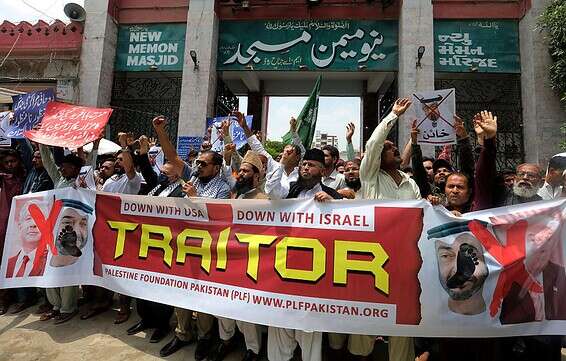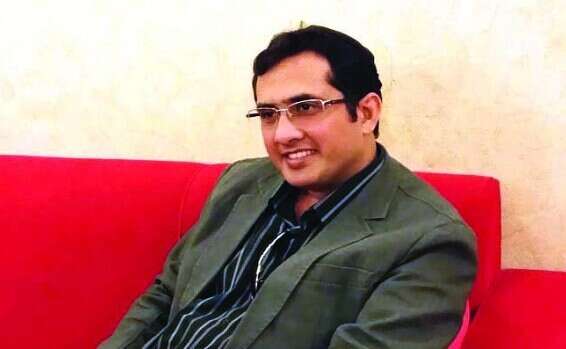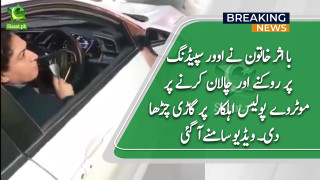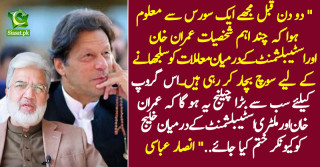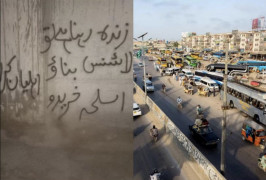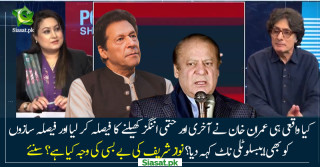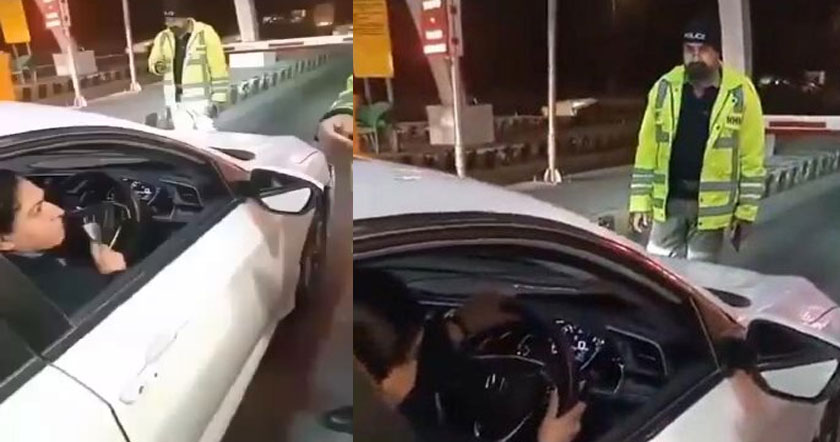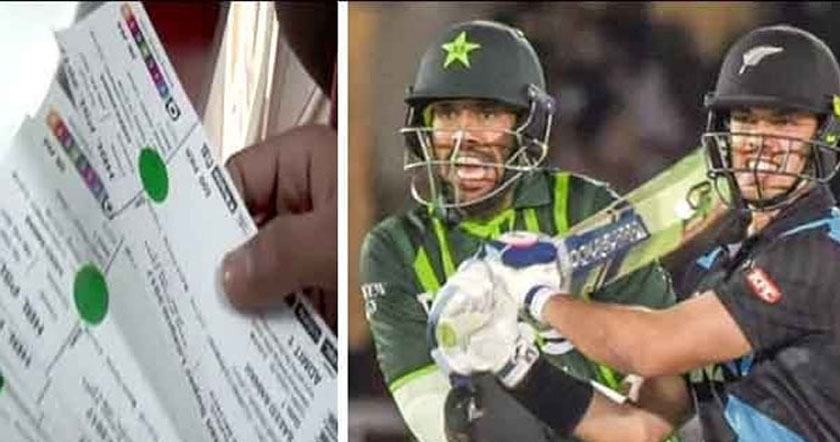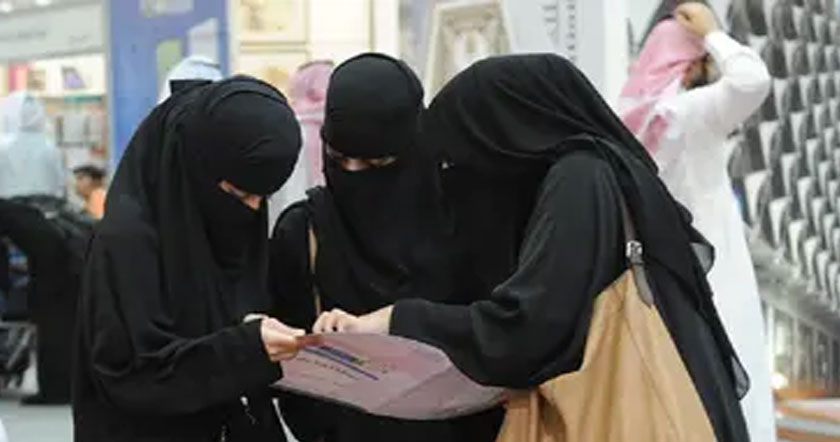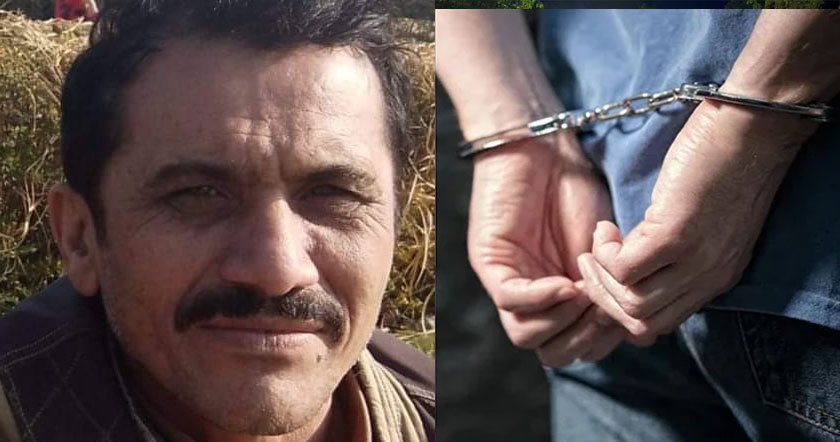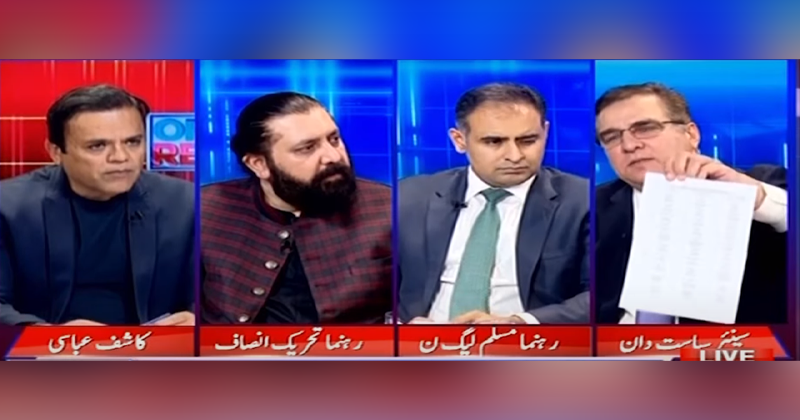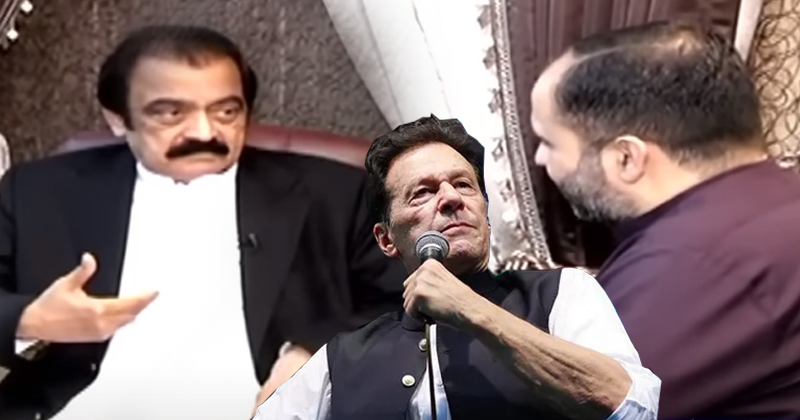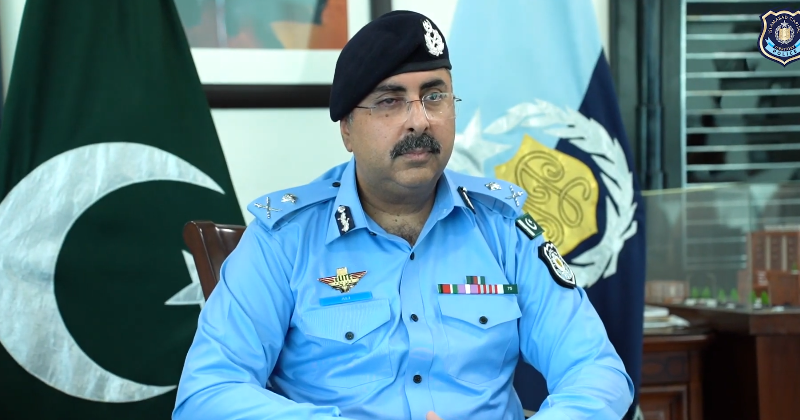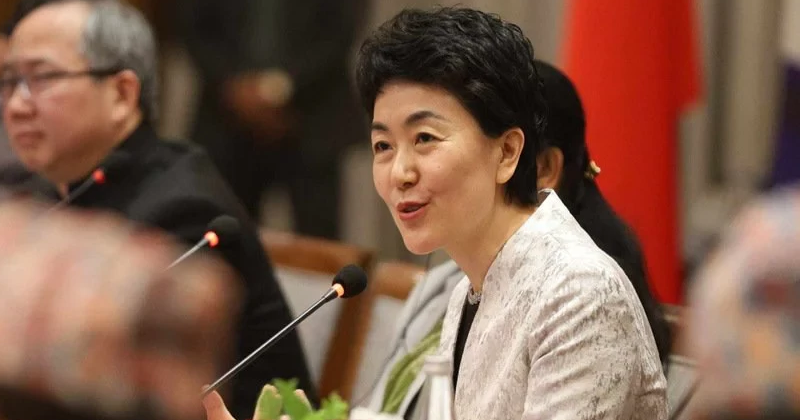As I watch the trailer for the forthcoming documentary Never Again?, it's strange to hear myself talking about how I hated America and believed the Jews were responsible for all the evil in the world. But that was the reality of the person I was—a person I would be forced to confront during the making of this film. As I traveled to places of once-great significance in my life, especially after a long day of shooting, I became, in some ways, a spectator to my own life. I would remember the moments and details that led me into that darkest corner of the human mind, where one sheds any pretense of basic humanity in pursuit of an unjust and evil cause.
Thankfully, that person no longer exists. And in the 13 years since I changed my views, I've seen the world around me change—and the same ideology that once poisoned my mind grow, mutate and continue to poison the minds of young people all over the world.
It's important to note that my radicalization did not take place in a madrasa in Pakistan or a university in Damascus; I was born and raised in England. I was raised to hate in a country that should largely be proud of its ambition to be truly tolerant.
My grandparents had come to the United Kingdom from Pakistan in the 1960s in search of a better life. My British family was, and remains, devoutly Sunni Muslim. They settled, and I grew up in, a predominantly Pakistani Muslim neighborhood in Nottingham. Sadly, the insular nature of the community in which I grew up, which is mirrored throughout both the United Kingdom and Western Europe, led to a situation where my grandparents would never learn to read, write or speak fluent English.
While not a hotbed of extremism, my community was rife with hatred for the Jews. With no interaction with any Jews or Israelis, it is strange that mention of Israel would elicit such hostile feelings among people—and the term "Jew" was used as an everyday insult. I was growing up at a particularly turbulent time for Muslims in the West: struggling for identity because we were not seen as British although born there, and not seen as Pakistani because we weren't, we clung to Islam to give us some sense of identity.
Ultimately, this feeling of isolation and not belonging to one's own country was manipulated and seized upon by extremist groups that operated in my community.
My radicalization did not happen overnight; it was a process. I was fed a narrative of victimhood by these extremist groups. They built on this idea of Jewish control of the world and an "us"—with "us" being the Muslims who believed their narrow interpretation versus them, and non-Muslims relegated to the "other." Accordingly, the very future of Islam hinged on the annihilation of Israel, the destruction of the world's Jews and the end of the United States of America.
The great con is that these extremist groups create a victimhood narrative and then present radicalism and violence as the solution. Everyone and everything they touch is morally or physically devastated, as a result.
And I accepted this new mindset. I would watch images from the Second Intifada of Israeli buses reduced to smoldering ruins and the September 11, 2001 attacks in the U.S. with no shred of sympathy for the victims. My basic humanity was dying from within.
University would fuel my hatred; I would become deeply involved in the anti-Semitic anti-Israel movement on my campus. After taking part in protests, handing out flyers and attending anti-Semitic events, I came to believe these tactics were ineffective and that violence was the only way to truly make a difference.
As I look at radicalization today, I've observed that while the means are becoming much more sophisticated—slick videos on social media, and so forth—the premise remains the same: to create a sense of victimhood and hopelessness to lure people towards extremism, and ultimately violence, in pursuit of "justice."
I had committed to join a terrorist group to train and then go fight against Israel, America and the Jews. While in this horrible mental state, I came across the book The Case for Israel, by Alan Dershowitz. Immersed in the anti-Israel narrative, I had convinced myself that I was undoubtedly right; by purchasing the book, I aimed to further validate my own truth and know my enemy.
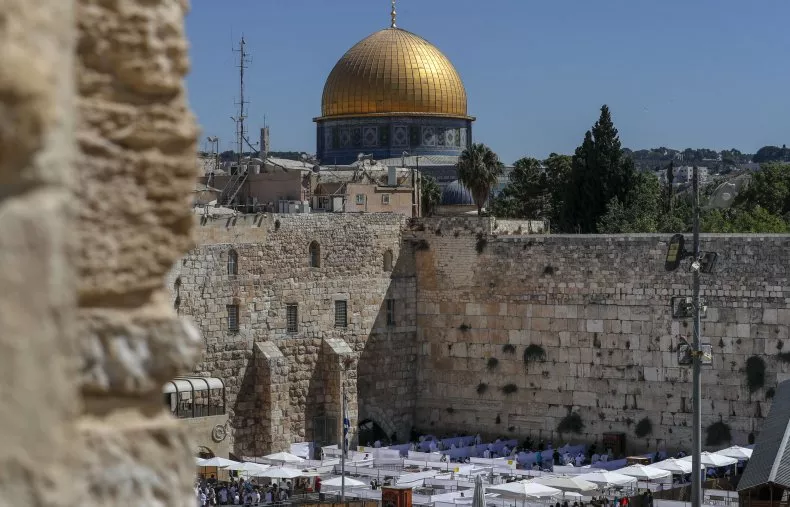
Western Wall in Old City of Jerusalem AHMAD GHARABLI/AFP VIA GETTY IMAGES
For me, Israel was Satan—the new Nazis, a cancer in the world that had to be excised. But The Case for Israel would present ideas that were completely alien to me, and a picture of Israel verified by numerous sources that was at odds with my beliefs.
To be sure, I did not immediately accept Dershowitz's picture of Israel as Gospel truth. On the one hand, I had my truth that I had believed for years; but on the other hand, here in this book were verifiable facts proving me wrong. I went beyond my own echo chamber, and more and more fact-based works indicated the wrongness of my beliefs. But even after all of that, I still couldn't come to accept that I had been wrong all along.
By 2007, my life was truly falling apart. I became uninterested in my studies, and my curiosity to learn more induced friends to ridicule me for being "brainwashed by the Jews." All the while, I still couldn't accept I was wrong. To see my long-held truth unravel in front of my eyes cut deeply into who I was. The anti-Semitic, anti-Israel cause to which I thought I had devoted my life remained righteous in my heart, but I began to harbor skepticism. Others began to see it, too. What if everything I had believed really was wrong?
In an attempt to salvage my narrative, I decided to go see firsthand the evils of Israel. I knew no one in Israel, and I spoke no Hebrew. Upon arriving at Ben Gurion Airport, I was detained for eight hours in security due to my very honest answer as to why I was visiting the country. Eight hours is a long time, but it was not an unpleasant experience. The security officer was apologetic, explaining why this was happening and frequently providing me with food and coffee. You might call it my first experience with a Jewish mother. I was eventually allowed to go on my way.
Seeing Israel firsthand shook me to my core. The lies that had defined my identity fell apart—lies about an apartheid state, lies about a white colonial state, lies about Jewish hatred for Muslims. On the contrary, I saw a diverse and pluralistic country. And from the many people I spoke with—Jewish, Arab, Christian, Muslim and more—I heard a desire for peace, rather than war.
The time I spent in Israel and the Palestinian-controlled territories forced me to confront just how dark my radicalization truly was. I had sunk to a mental place where murder could be justifiable. I had been prepared to kill innocent men, women and children based on nothing but a myth.
To look in the mirror and truly see who I had been was startling, depressing and extremely difficult. What if you woke up tomorrow to discover that you had been Mr. Hyde all along? That is the effect visiting Israel had on me. The radical may have died, but I was very much alive. I made the choice to move forward.
When I returned to the U.K., I felt an obligation to shine a light on the toxic hatred that had consumed me in an effort to prevent others from going down that dark path. With my newfound clarity, I didn't think I was doing anything controversial—but the response from friends, family and my community was very hostile.
Today, I have dedicated my life to combating the hatred of Jews. I am living my own personal version of the American dream and hope to soon become a citizen of the nation whose highest ideals accepted me, despite my wretched past.
Much has changed in my life since that first trip to Israel—but more significantly, so has the world around us. The virus of anti-Semitism is growing and being normalized, from the university campus to local communities to government itself. For years now, I've spoken out against this resurgent evil that I've seen firsthand.
The process of de-radicalization is difficult. I am well aware that I am the exception, not the rule. But if we can inoculate people to the lies before those lies solidify in impressionable young minds, we stand a chance of turning this tide...
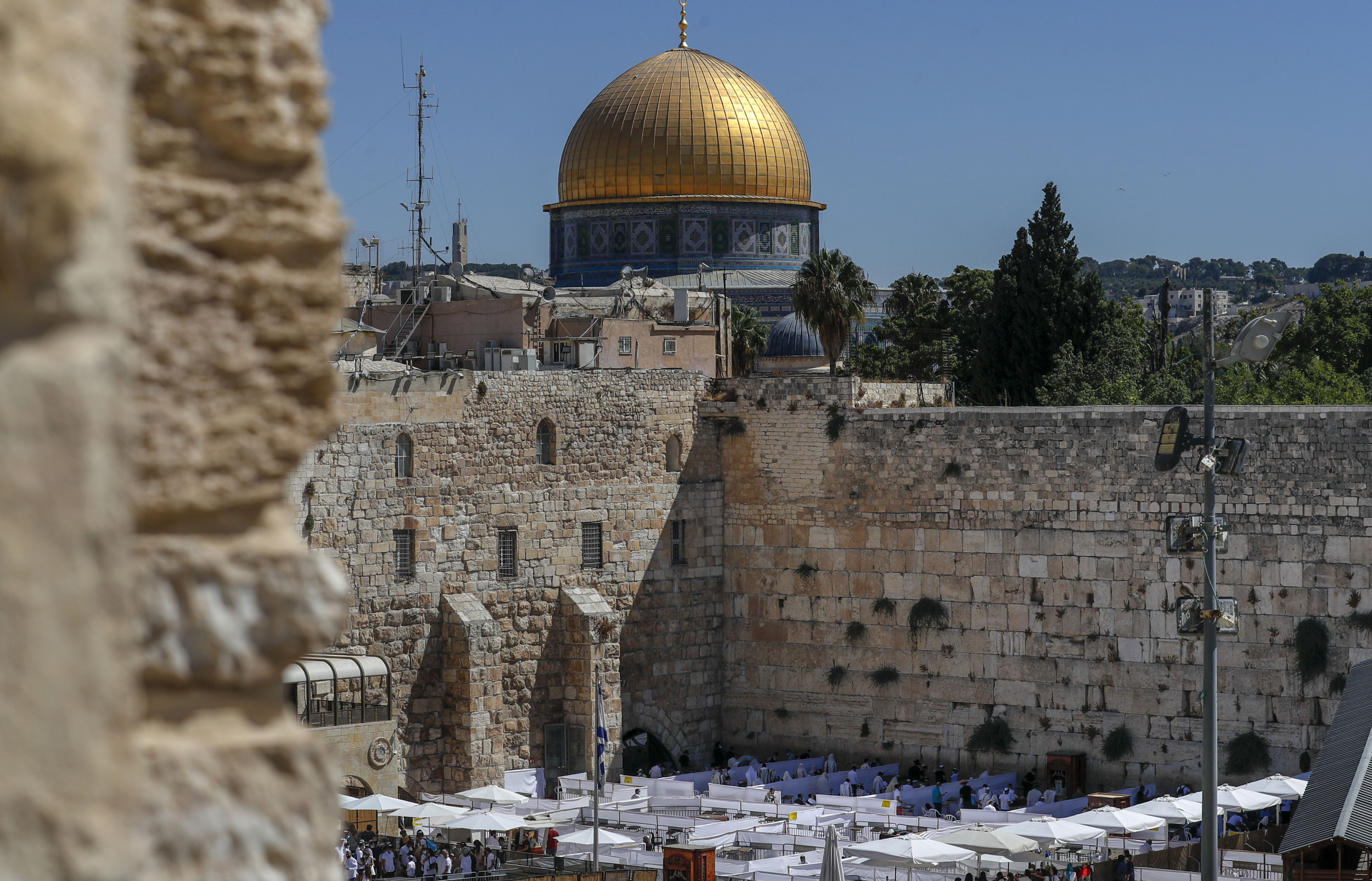
 www.newsweek.com
www.newsweek.com
Thankfully, that person no longer exists. And in the 13 years since I changed my views, I've seen the world around me change—and the same ideology that once poisoned my mind grow, mutate and continue to poison the minds of young people all over the world.
It's important to note that my radicalization did not take place in a madrasa in Pakistan or a university in Damascus; I was born and raised in England. I was raised to hate in a country that should largely be proud of its ambition to be truly tolerant.
My grandparents had come to the United Kingdom from Pakistan in the 1960s in search of a better life. My British family was, and remains, devoutly Sunni Muslim. They settled, and I grew up in, a predominantly Pakistani Muslim neighborhood in Nottingham. Sadly, the insular nature of the community in which I grew up, which is mirrored throughout both the United Kingdom and Western Europe, led to a situation where my grandparents would never learn to read, write or speak fluent English.
While not a hotbed of extremism, my community was rife with hatred for the Jews. With no interaction with any Jews or Israelis, it is strange that mention of Israel would elicit such hostile feelings among people—and the term "Jew" was used as an everyday insult. I was growing up at a particularly turbulent time for Muslims in the West: struggling for identity because we were not seen as British although born there, and not seen as Pakistani because we weren't, we clung to Islam to give us some sense of identity.
Ultimately, this feeling of isolation and not belonging to one's own country was manipulated and seized upon by extremist groups that operated in my community.
My radicalization did not happen overnight; it was a process. I was fed a narrative of victimhood by these extremist groups. They built on this idea of Jewish control of the world and an "us"—with "us" being the Muslims who believed their narrow interpretation versus them, and non-Muslims relegated to the "other." Accordingly, the very future of Islam hinged on the annihilation of Israel, the destruction of the world's Jews and the end of the United States of America.
The great con is that these extremist groups create a victimhood narrative and then present radicalism and violence as the solution. Everyone and everything they touch is morally or physically devastated, as a result.
And I accepted this new mindset. I would watch images from the Second Intifada of Israeli buses reduced to smoldering ruins and the September 11, 2001 attacks in the U.S. with no shred of sympathy for the victims. My basic humanity was dying from within.
University would fuel my hatred; I would become deeply involved in the anti-Semitic anti-Israel movement on my campus. After taking part in protests, handing out flyers and attending anti-Semitic events, I came to believe these tactics were ineffective and that violence was the only way to truly make a difference.
As I look at radicalization today, I've observed that while the means are becoming much more sophisticated—slick videos on social media, and so forth—the premise remains the same: to create a sense of victimhood and hopelessness to lure people towards extremism, and ultimately violence, in pursuit of "justice."
I had committed to join a terrorist group to train and then go fight against Israel, America and the Jews. While in this horrible mental state, I came across the book The Case for Israel, by Alan Dershowitz. Immersed in the anti-Israel narrative, I had convinced myself that I was undoubtedly right; by purchasing the book, I aimed to further validate my own truth and know my enemy.

Western Wall in Old City of Jerusalem AHMAD GHARABLI/AFP VIA GETTY IMAGES
For me, Israel was Satan—the new Nazis, a cancer in the world that had to be excised. But The Case for Israel would present ideas that were completely alien to me, and a picture of Israel verified by numerous sources that was at odds with my beliefs.
To be sure, I did not immediately accept Dershowitz's picture of Israel as Gospel truth. On the one hand, I had my truth that I had believed for years; but on the other hand, here in this book were verifiable facts proving me wrong. I went beyond my own echo chamber, and more and more fact-based works indicated the wrongness of my beliefs. But even after all of that, I still couldn't come to accept that I had been wrong all along.
By 2007, my life was truly falling apart. I became uninterested in my studies, and my curiosity to learn more induced friends to ridicule me for being "brainwashed by the Jews." All the while, I still couldn't accept I was wrong. To see my long-held truth unravel in front of my eyes cut deeply into who I was. The anti-Semitic, anti-Israel cause to which I thought I had devoted my life remained righteous in my heart, but I began to harbor skepticism. Others began to see it, too. What if everything I had believed really was wrong?
In an attempt to salvage my narrative, I decided to go see firsthand the evils of Israel. I knew no one in Israel, and I spoke no Hebrew. Upon arriving at Ben Gurion Airport, I was detained for eight hours in security due to my very honest answer as to why I was visiting the country. Eight hours is a long time, but it was not an unpleasant experience. The security officer was apologetic, explaining why this was happening and frequently providing me with food and coffee. You might call it my first experience with a Jewish mother. I was eventually allowed to go on my way.
Seeing Israel firsthand shook me to my core. The lies that had defined my identity fell apart—lies about an apartheid state, lies about a white colonial state, lies about Jewish hatred for Muslims. On the contrary, I saw a diverse and pluralistic country. And from the many people I spoke with—Jewish, Arab, Christian, Muslim and more—I heard a desire for peace, rather than war.
The time I spent in Israel and the Palestinian-controlled territories forced me to confront just how dark my radicalization truly was. I had sunk to a mental place where murder could be justifiable. I had been prepared to kill innocent men, women and children based on nothing but a myth.
To look in the mirror and truly see who I had been was startling, depressing and extremely difficult. What if you woke up tomorrow to discover that you had been Mr. Hyde all along? That is the effect visiting Israel had on me. The radical may have died, but I was very much alive. I made the choice to move forward.
When I returned to the U.K., I felt an obligation to shine a light on the toxic hatred that had consumed me in an effort to prevent others from going down that dark path. With my newfound clarity, I didn't think I was doing anything controversial—but the response from friends, family and my community was very hostile.
Today, I have dedicated my life to combating the hatred of Jews. I am living my own personal version of the American dream and hope to soon become a citizen of the nation whose highest ideals accepted me, despite my wretched past.
Much has changed in my life since that first trip to Israel—but more significantly, so has the world around us. The virus of anti-Semitism is growing and being normalized, from the university campus to local communities to government itself. For years now, I've spoken out against this resurgent evil that I've seen firsthand.
The process of de-radicalization is difficult. I am well aware that I am the exception, not the rule. But if we can inoculate people to the lies before those lies solidify in impressionable young minds, we stand a chance of turning this tide...

I Was Radicalized. Now, I've Dedicated My Career to Combating Anti-Semitism
Seeing Israel firsthand can make a huge difference in helping some de-radicalize.


